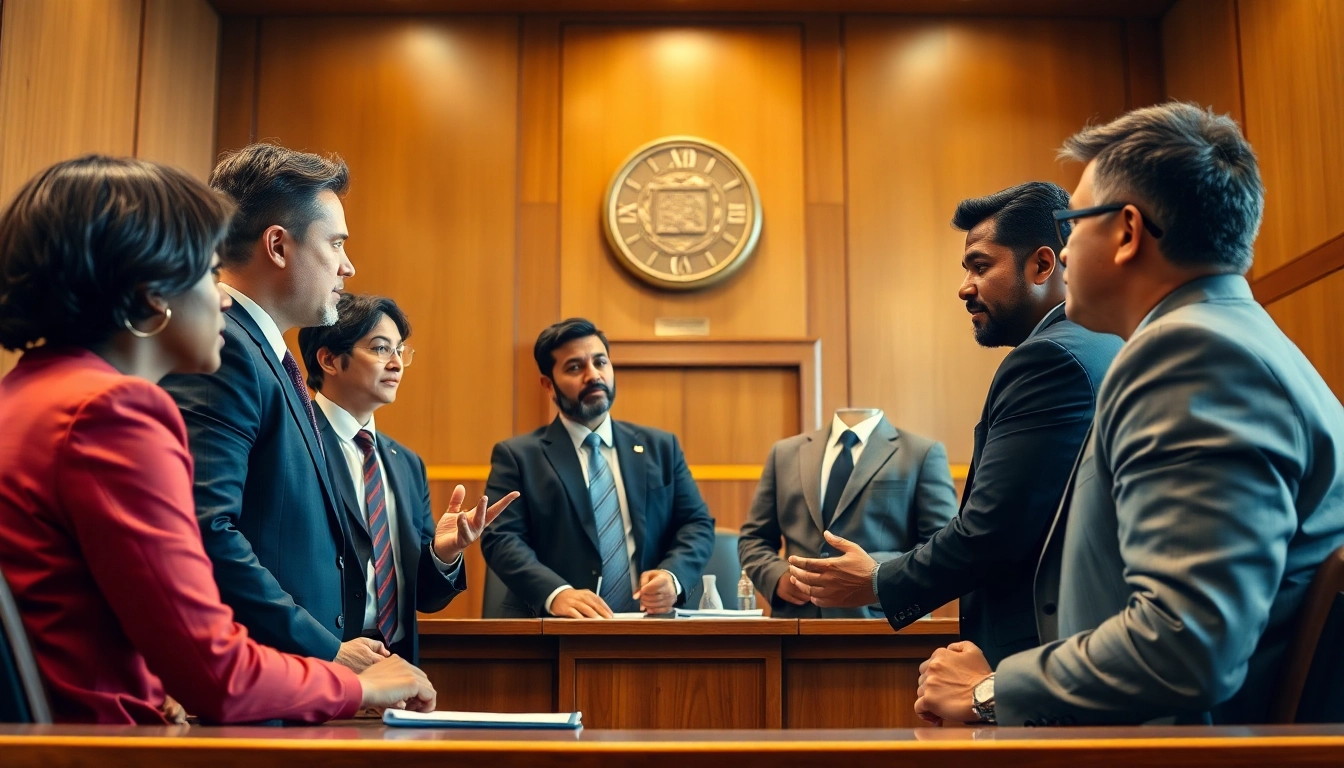Understanding the Importance of Florida Car Accident Attorneys
Being involved in a car accident can be a traumatic experience that often leaves victims feeling overwhelmed and uncertain about the next steps. In such situations, having the right legal representation becomes vital. Florida car accident attorneys can navigate the complexities of state laws and ensure that your rights are protected. The legal aftermath of a car accident can be daunting, making it essential to understand the various roles an attorney can play in your recovery process.
Why You Need Legal Representation After an Accident
The aftermath of a car accident can often feel like entering a maze of insurance claims, medical bills, and legal jargon. Here are a few compelling reasons why securing legal representation is essential:
- Expert Navigation of the Legal Landscape: Florida’s laws regarding motor vehicle accidents can be complex. An experienced attorney knows the ins and outs of the legal system and can guide you through every step.
- Insurance Negotiations: Insurance companies often seek to minimize their payouts. An attorney acts as a buffer between you and the insurer, ensuring that you receive fair compensation.
- Evidence Gathering: Attorneys know what evidence is critical for your case. They can help in collecting police reports, medical records, and witness statements to strengthen your position.
- Emotional Relief: Dealing with legal processes and negotiations can add to your stress during an already challenging time. Having an attorney handle these details allows you to focus on healing.
Common Myths About Hiring Attorneys in Florida
Myths surrounding hiring legal representation can deter individuals from seeking help. Here are some common misconceptions debunked:
- Myth 1: I Can’t Afford an Attorney: Many car accident attorneys work on a contingency fee basis, meaning you only pay if you win your case.
- Myth 2: I’ll Lose More Money with an Attorney: Hiring an attorney can often lead to a higher settlement than negotiating on your own, ultimately providing more financial benefits.
- Myth 3: Attorneys Only Care About Money: While compensation is essential, attorneys are also genuinely concerned about their client’s well-being and justice in the case.
- Myth 4: I Can Handle This on My Own: While self-representation is an option, navigating the intricate legal systems can be misleading and result in less favorable outcomes.
Choosing the Right Attorney for Your Needs
Selecting the right attorney can make a significant difference in your case outcome. Here are several important factors to consider:
- Specialization: Look for an attorney who specializes in personal injury and specifically in car accidents. Their expertise will be invaluable.
- Reputation: Research the attorney’s track record and client reviews. A strong reputation speaks to their effectiveness.
- Communication: Choose someone who keeps you informed and is easy to communicate with throughout the process.
- Comfort Level: Trust your instincts. You should feel comfortable discussing your case details with your attorney.
Common Causes of Car Accidents in Florida
Understanding the common causes of car accidents in Florida is crucial for both prevention and legal action. Several factors contribute to the high incidence of vehicle collisions, and being aware of these can help you navigate your case better.
Distracted Driving: A Growing Concern
Distracted driving remains one of the leading causes of car accidents. With the increasing use of smartphones and other devices, distractions can dramatically impair a driver’s ability to react quickly to road conditions. Here are some statistics highlighting the severity:
- According to the Florida Department of Highway Safety and Motor Vehicles, distracted driving accounted for over 50,000 crashes in a single year.
- Experts estimate that texting while driving increases the risk of crashing by 23 times.
Victims of distracted driving accidents may be entitled to compensation, particularly if the other driver is found negligent for their actions.
Understanding Florida’s Unique Driving Conditions
Florida’s geography and weather can also contribute to accidents. The state is known for its heavy traffic, especially in urban areas, not to mention frequent rainstorms that can make road conditions perilous. Other factors include:
- Tourism Traffic: Increased visitors during peak seasons can lead to congested roads.
- High-Speed Limits: Florida highways often allow higher speed limits, increasing the severity of accidents.
- Inexperienced Drivers: The influx of new residents can sometimes mean that drivers are not familiar with local traffic laws and conditions.
Driving Under the Influence: Legal Implications
Driving under the influence (DUI) remains a significant problem in Florida, contributing to countless accidents. The statistics paint a troubling picture:
- The National Highway Traffic Safety Administration reports that approximately 29 people die every day in the U.S. from crashes involving drunk drivers.
- Florida ranked high in DUI arrests, emphasizing the need for responsible driving and legal consequences for offenders.
If you are involved in an accident caused by a DUI driver, it’s essential to consult with an attorney. They can help ensure that you receive the compensation you deserve.
Navigating the Legal Process with Florida Car Accident Attorneys
After an accident, understanding the legal process is vital for recovering damages. Here’s a breakdown of what to expect:
The Initial Consultation: What to Expect
During the initial meeting with your attorney, expect a comprehensive discussion about your accident. Prepare to provide details such as:
- When and where the accident occurred
- Injuries sustained and medical documentation
- Photos of the accident scene and vehicles involved
- Witness information if applicable
This consultation allows your attorney to assess your case’s viability, discuss potential legal strategies, and outline the next steps.
Gathering Evidence for Your Case
Building a strong case requires substantial evidence. Your attorney will assist in collecting various types of evidence, including:
- Police Reports: Official documentation showing who was at fault.
- Medical Records: Documentation of injuries directly related to the accident.
- Witness Statements: Eyewitness accounts can corroborate claims.
- Expert Testimonies: Sometimes, accident reconstructionists may be needed to provide insight on fault and causation.
Negotiating with Insurance: Tips and Strategies
Negotiating with insurance companies can be challenging, especially since they aim to minimize payouts. Here are some effective strategies:
- Know the Value of Your Claim: Understand your damages—medical expenses, lost wages, emotional distress, and property damage.
- Remain Professional: It’s important to stay calm and collected, even if the insurance adjuster pushes back.
- Document Everything: Keep a record of all communication with insurance to strengthen your case.
- Be Ready to Reject Low Offers: Often, the first offer will be a low one. Do not accept without consulting your attorney first.
Compensation for Injuries and Damages
Victims of car accidents in Florida may be entitled to various types of compensation, depending on the circumstances of their case. Understanding what you can claim is key to ensuring proper recovery.
Types of Damages You Can Claim in Florida
In Florida, damages from car accidents typically fall into two categories: economic and non-economic damages:
- Economic Damages: These are tangible costs that include medical expenses, vehicle repair or replacement costs, lost wages, and other financial losses.
- Non-Economic Damages: These damages are harder to quantify and can include pain and suffering, emotional distress, and loss of quality of life.
In certain circumstances, punitive damages may also be applicable, primarily aimed at punishing the negligent party and deterring similar behavior.
How Florida’s No-Fault Law Affects Your Claims
Florida operates under a no-fault insurance system. This means that your own insurance covers your medical expenses and certain losses, regardless of who was at fault. Here’s how this law impacts claims:
- To maximize your recovery, you must meet a threshold of severe injuries (such as permanent injury or significant permanent scarring or disfigurement) to pursue a claim against the at-fault driver’s insurance.
- Under the no-fault law, you will generally file a claim with your own insurer for medical bills, but this limit may restrict total compensation for out-of-pocket expenses.
Understanding these nuances is crucial for making informed decisions regarding your case.
Proving Negligence in Car Accident Cases
To secure compensation, you must establish that the other party was negligent. This involves proving four critical elements:
- Duty of Care: The other driver had a legal obligation to drive safely.
- Breach of Duty: The driver acted negligently, breaking that duty (e.g., texting and driving).
- Causation: The breach directly caused the accident and your injuries.
- Damages: There are measurable damages resulting from the accident.
Your attorney will assist in gathering the necessary evidence to support these elements and advocate on your behalf.
Choosing the Right Florida Car Accident Attorney for You
Finding the right attorney can feel overwhelming, but several essential factors can simplify the decision-making process. Here’s what you need to consider:
Assessing Experience and Track Record
Look for an attorney with a proven track record in handling car accident cases. Evaluate their experience in:
- Years in Practice: More experience can often translate to better negotiation skills and a deeper understanding of the law.
- Success Rates: Ask about their success rates in settling cases versus going to trial.
- Case Types: Ensure they specialize in car accident cases rather than general personal injury.
Understanding Fee Structures: Contingency vs. Hourly Rates
Be clear about how potential attorneys charge for their services:
- Contingency Fee: Lawyers often work on a contingency fee basis, meaning you only pay them a percentage of your settlement or award if you win your case.
- Hourly Rates: Some attorneys may charge by the hour, which can add up quickly and pose financial risks if your case drags on.
Make sure to discuss the fee structure upfront to avoid any surprises later on.
Client Testimonials: What to Consider
Client testimonials and reviews can provide insight into an attorney’s strengths and weaknesses. As you research potential attorneys, consider the following:
- Communication Skills: Look for comments on how well the attorney communicates with clients.
- Results Achieved: Pay attention to past success rates shared by former clients.
- Service Quality: Reviews can reveal how clients feel about their overall experiences.
Listening to others’ experiences will help you make an informed decision about who to trust with your case.



